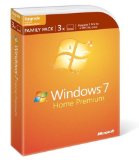 Are you wondering what the buzz about Solid State Disks (SSDs) is all about and whether they're right for you?
Are you wondering what the buzz about Solid State Disks (SSDs) is all about and whether they're right for you?
Read on to learn how SSDs are better than conventional hard drives and who should upgrade their desktop or laptop hard drive with an SSD.
Conventional hard drives are built using mechanical, moving parts that limit the computer's speed, consume excessive power and have delicate parts that break down or are easily damaged. Solid State Disks offer better performance, consume less power and boast extreme reliability and durability…among other benefits.
For Example: When you click to open a program like Internet Explorer or Microsoft Word, you often are waiting for the hard drive to find and retrieve the program while you wait for it to open. The same thing happens when you start up your computer from a powered off state. SSDs, however, have no moving parts to slow it down. Instead, they are built using electronic memory chips that allow for much faster performance, lower power consumption, extreme reliability and durability…among other benefits.
Here are Five Reasons SSDs are better than Conventional Hard Drives
High Speed Transfer Rates:
SSDs provide up to 45% Faster Boot time for Windows XP and 67% faster application load time. That means less time waiting for your computer and more productivity. Transcend, a trusted manufacturer of quality SSDs, claims a laptop running Windows XP that starts up in 37 seconds with a mechanical hard drive will but as fast as 20 seconds using an SSD. Although the speed varies with each SSD model and capacity, this gives you an idea of the difference you may experience.
Technically speaking, Transcend SSDs boast 0ms Latency and 0.2 ms Access Times for a more responsive experience.
Longer Battery Run-Time:
Transcends SSDs use up to 46% less power, allowing your laptop battery to last longer.
Resistant to Impact, Vibration & Extreme Environments:
SSDs are many times more resistant to damage caused by an impact (such as dropping your laptop) and vibration exposure. Transcend's SSDs can tolerate extreme environments due to a wider operating temperature range of around 32 - 158 degrees Fahrenheit (versus conventional hard drive range of 41 - 131 degrees Fahrenheit).
Cool & Quiet:
SSDs produce zero noise and vibration and run 20% cooler. Less heat means less energy is needed to for internal fans cool the system. This allows for greater protection against damaging heat produced within the system. Since the fans run less, this extends the battery run-time even further.
Light-Weight:
SSDs weigh 50% less, lightening your laptop instantly.
Who Should Switch to SSDs?
Virtually anyone who wants to speed up their existing Desktop, Laptop or even Netbook computer would see benefits in switching to an SSD for their primary operating system drive. SSDs come in various sizes and speed classes to fit just about any computer or need. Transcend produces SSDs with various interface connector types, including IDE SSDs, SATA SSDs, and mini-PCI-E and ZIF SSDs, including the very affordable MLC and the faster performing SLC speed drives for each type. For operating system installations, Transcend recommends the faster SLC SSD drives.
SSDs easily replace your desktop or laptop computer's hard drive and offer better performance and durability. Most SSDs are built on the 2.5 inch size that is commonly used in full-size laptop computers. Desktop PCs may require an optional, but inexpensive adapter bracket to fit the 2.5 inch SSDs into their standard 3.5 inch drive bays. See the 2.5 to 3.5 inch Drive Bay Adapter Kits at www.theupgradeplace.com.
Author - Deanna Albertson - If you need help choosing the right SSD for you, Contact our SSD Upgrade Experts for assistance at 800-338-1531 at The Upgrade Place.



Comments on Solid State Disks (SSDs) Vs Hard Drives - Five Reasons SSDs Are Better
Eamon @ 3:27 am
You've overlooked the expense of SSD's compared to conventional hard disks. Secondly and very importantly if the SSD / Operating System doesn't support TRIM then your new and expensive SSD could end up being much slower than the hard disk you replaced.
Pipps @ 3:20 pm
You have overlooked the fact that many people wrongly believe that SSDs somehow degrade over time and have a limited operational life. Many people still avoid SSDs for this entirely erroneous reason. For most consumers, explaining the true position on this point, will be the factor which convinces them to invest in this superior technology.
teddy @ 6:52 am
Blokir the number of IQbal,now!all the hp